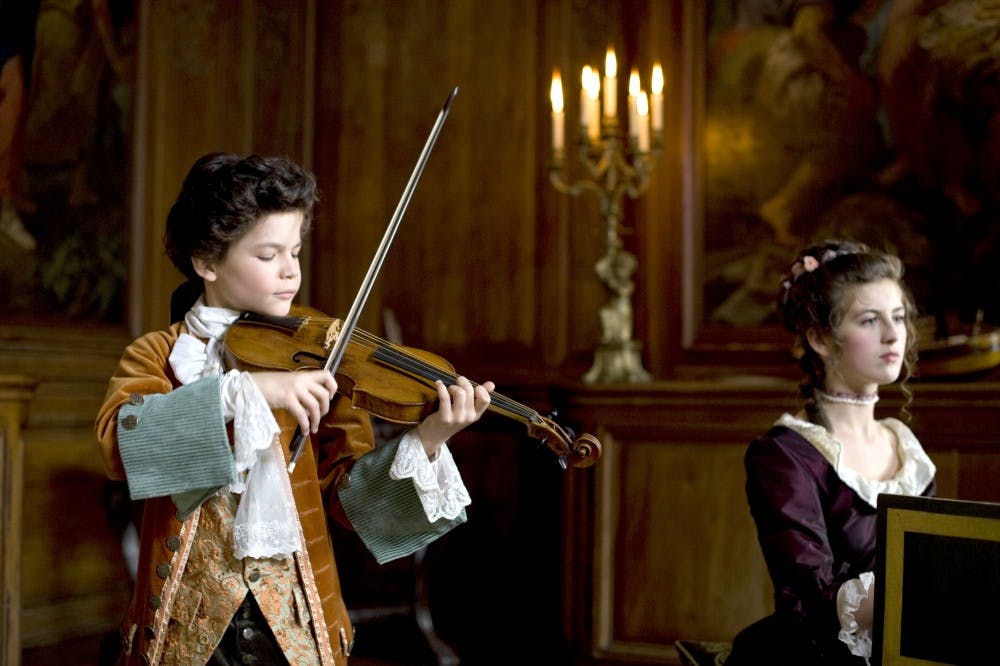Television today is busting at the seams with reality shows that present us with domineering parents attempting to live out their dreams through the exploitation of their children’s talents (see Dance Moms and Toddlers & Tiaras). This is not a recent phenomenon, as Mozart’s Sister, a new French film by Rene Feret suggests. Stage parents have actually been around since 18th century France — and surely even before that — they just came with much less glitz, wine throwing, and hairspray.
The film tells the story of the Mozart children, Wolfgang, who is around 11 at the time, and the lesser-known prodigy, his older sister Nannerl, age 14. Managed by their father, Wolfgang and Nannerl are forced to tour Europe, performing for royal courts along the way. Although the film presents an interesting study of familial relationships and sibling rivalry, its major success is its representation of the role of women in music during that era. Her fate already determined by her gender, Nannerl is obliged to waste her talent accompanying her brother on the harpsichord.
Overall, the film is both intimate and restrained. Those who appreciate period pieces, lavish sets and costumes (some of the interiors were actually shot in Versailles), and classical music will enjoy this film. That said, it leaves much to be desired for those who don’t. There are charming moments — particularly when Narnnel and Mozart are shown together playing — but they appear rarely. During the rest of the time, the film borders on tedious and monotone.
A major flaw of Feret was casting the two female leads to his daughters. Marie Feret, in the role of Narrnel did a fine job, but nowhere near star quality. Lisa Feret, on the other hand, who plays Louise, a young daughter of Louis XV, is arguably appalling. Her performance is distractingly awkward and self-conscious. Not having the benefit of being a seasoned actress, she fails to really channel the mannerisms, body language, and poise generally associated with nobility prior to the French Revolution. Although her performance doesn’t completely ruin the film, her early appearance somewhat breaks the realism for following two hours. Based on her performance, it wouldn’t be surprising to see Louise walking around in a t-shirt and jeans.
While the storyline surrounding an unrealized genius suppressed by patriarchy has great potential, this portrait of the Mozart family fails to impress. Feret hints at interesting character development with Louise, a princess forced into a nunnery, but neglects to bring them to fruition. The most interesting, yet marginal, aspects of the story are underplayed while the tragic and melodramatic reign.
If you’re in the mood for music and a cross-dressing female lead, you should probably just watch Mulan.
2/5 Stars
Directed by: Rene Feret
Starring: Marie Feret, Marc Marbe
120 min.
See if you liked: Marie Antoinette (2006)

